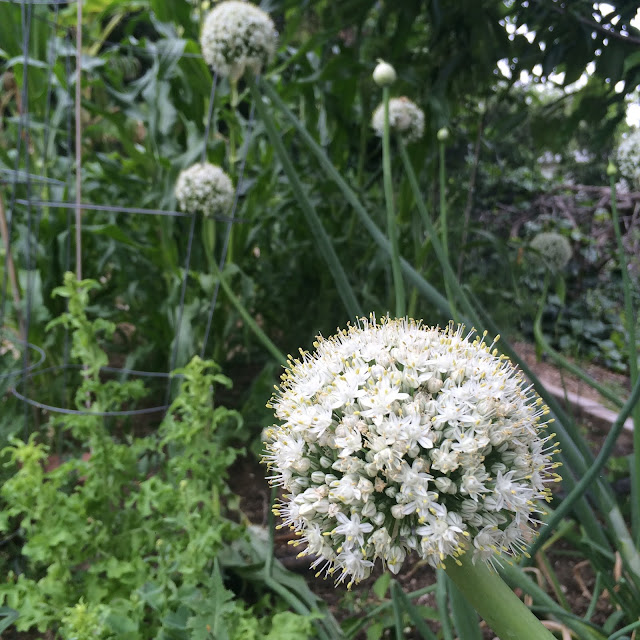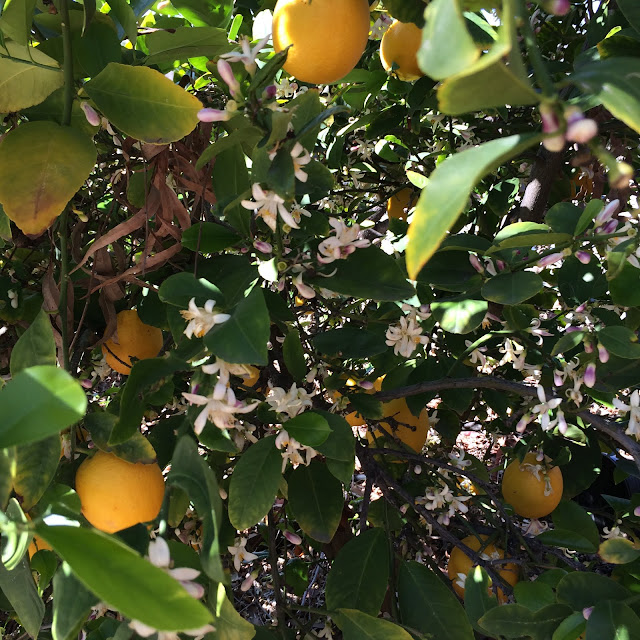Los Angeles gets 4 seasons, just like everywhere else. Seasons go as follow:
October-November: FALLish-SUMMER: Scorchingly hot but
maybe some leaves drop. We get super excited. We carve pumpkins, children trick or treat in T-Shirts and we thank native Americans by eating the sweet-potatoes that have been curing in a dark spot (did you know that unlike regular potatoes, sweet potatoes can't be eaten right away?
They need to be cured to be sweet).
December: WINTER. Average rainfall: nil. Average temperature: a frigid 70 degrees. But the sun is lower in the sky and night falls around 5 pm. So
maybe, perhaps, less sunlight in some areas. We wear Santas' Hats and do holiday shopping in flip flops.
January-February-March: SPRING! Flowers everywhere. Sometimes gallons of rain fall on your head, sometimes no water at all for say, years.
April-September: SUMMER. Temperatures fluctuate starting in the mid 80s and reaching as much as 115 degrees where I live.
So while my poor mom in France scrutinizes the sky for patches of blue and prays for temperatures over 50 degrees, I cruelly send her pictures of the San Fernando Valley where the garden looks like this:
Tomatoes plants are human-sized:

Tomatoes are timidly showing up

Corn is shoulder-high and the flowers have come out. The bags are not Halloween decoration, or ways to scare birds but my attempt at harvesting pollen from corn flowers. Because in small vegetable gardens, especially in urban gardens, bees can be hard to find and since we get no wind, there needs to be a way to pollinate. I wrote a post about it here.

This is the ears' silk that will need pollinating:

We have turnips the size of our heads.

Beets can barely fit in my hand.

Carrots are ready to pick.

Onions are producing humongous flowers that are too pretty to cut.


Beans come in such abundance that they're starting to haunt our dreams

Strawberries are turning from flowers to berry in the blink of an eye.


And pretty flowering vines are trying to devour the house.





















































